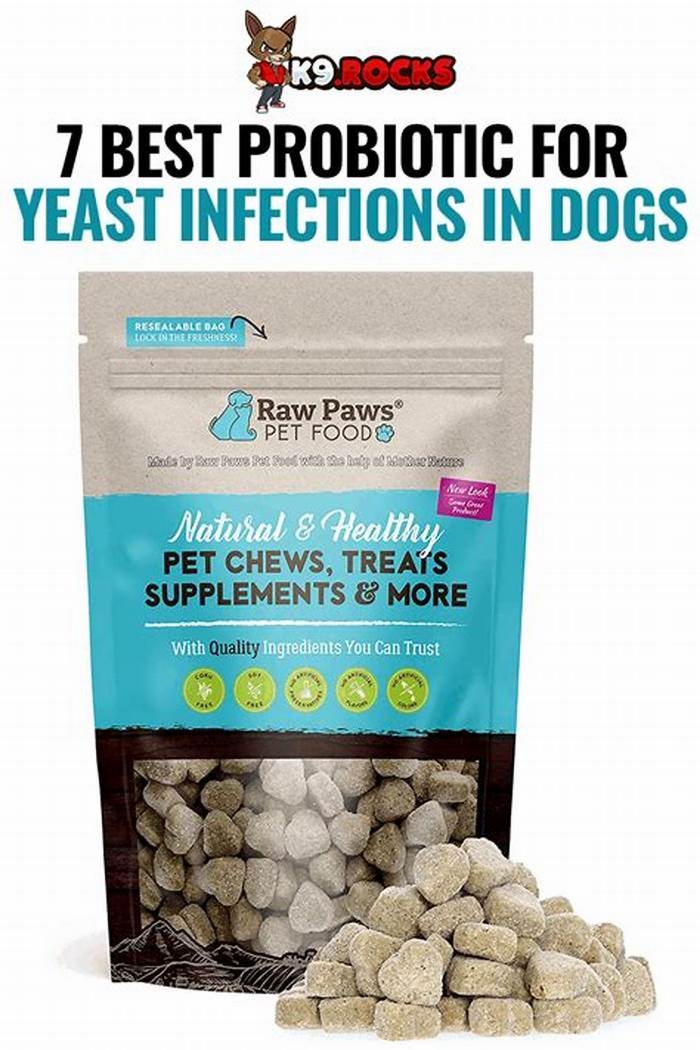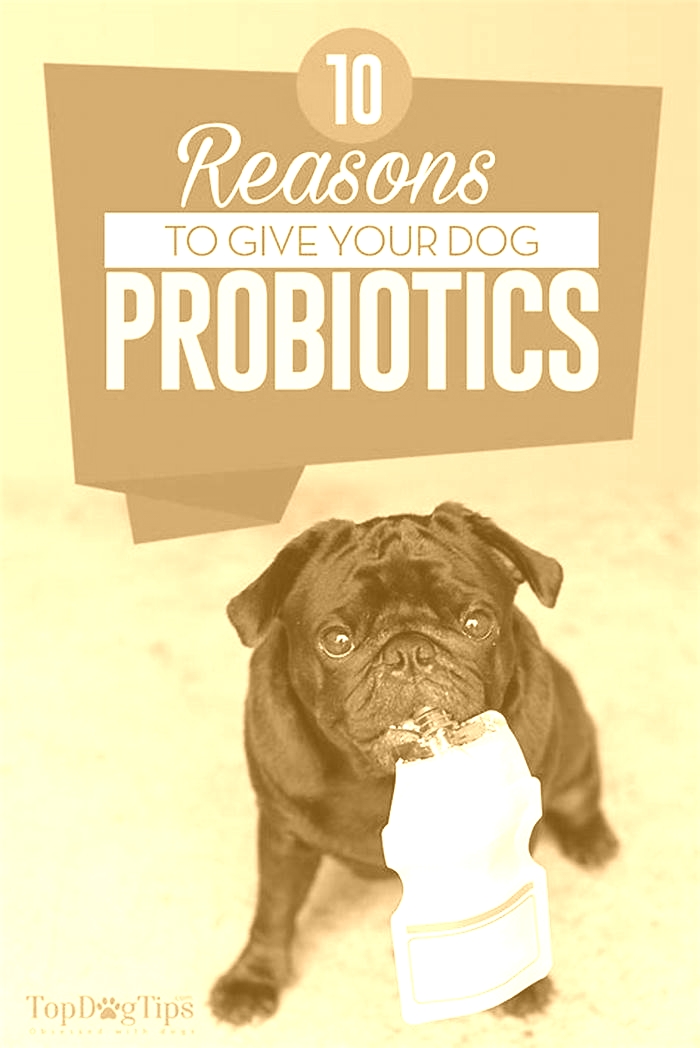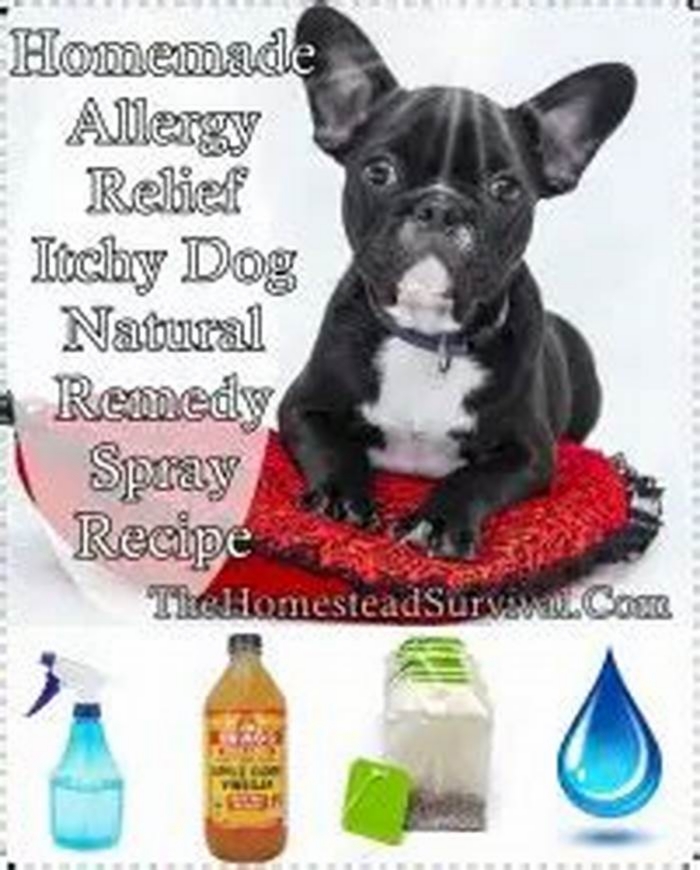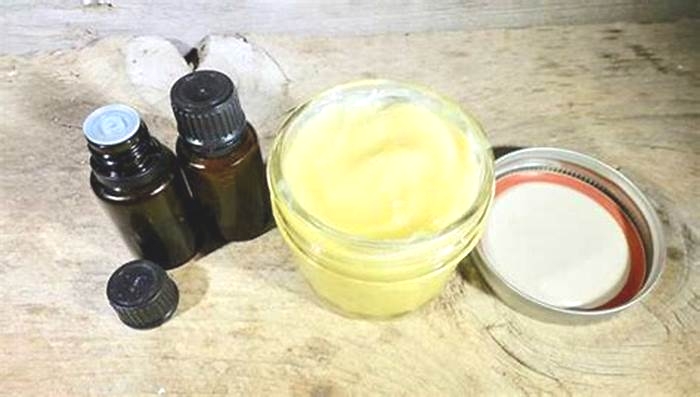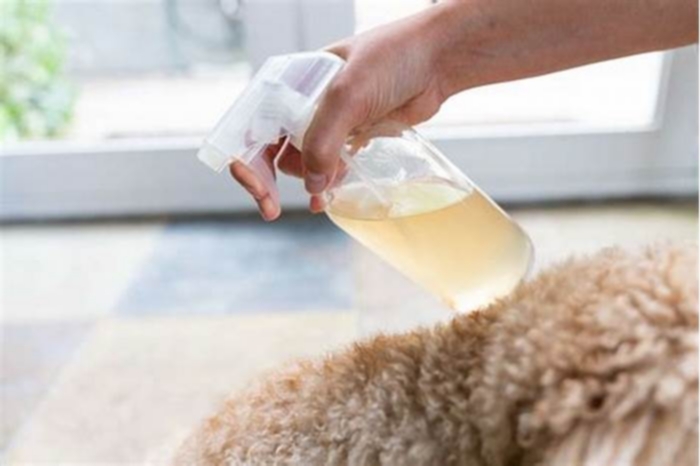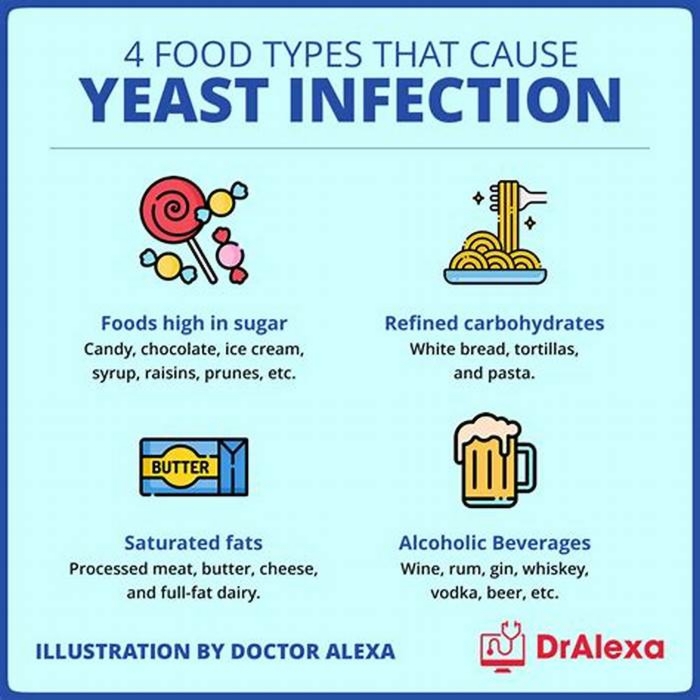Can I make my own probiotics for my dog
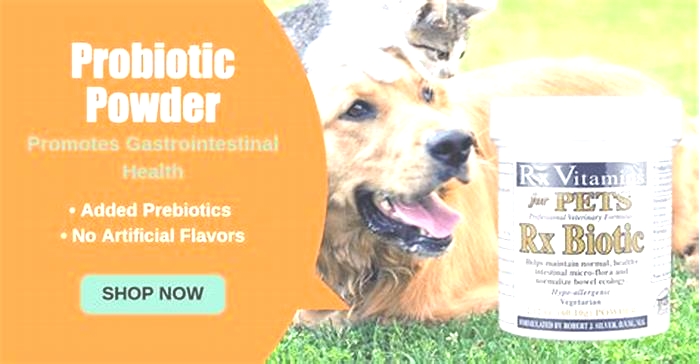
8 Homemade Probiotic Dog Treat Recipes
So whats the deal with Probiotics for dogs?
Like humans, dogs also have beneficial gut bacteria that live in their digestive tract. Healthy gut bacteria families (called phyla) have fancy names like:
- Proteobacteria
- Actinobacteria
- Firmicutes
- Bacteroidetes
- Spirochaetes
- Fusobacteria
In each one of these families theres thousands of different types of bacteria. Together these families make up your dogs unique microbiome. A balanced microbiome can improve immune system, digestion, mood, and overall health.Probiotics are nutrients designed to promote the growth of healthy gut bacteria. These are commonly supplemented into dog diets with products such as:
- Yogurt
- Kefir
- Green Tripe
- Goats Milk
- Specialized capsules, powders, or chews.
Of course, this is just a really brief overview, and I recommend you dive deeper into the world of probiotics before jumping in.
Can Probiotics Be Harmful?
Gut bacteria is a complex system that is constantly changing but always trying to balance itself. Drastic changes to the microbiome balance could have a negative impact. We call this Dysbiosis.
Dysbioses can lead to diarrhea, bloating, gas, bad breath, or even more severe effects such as diabetes or obesity. So before supplementing their diet always consult with a vet.
Furthermore, when making homemade treats be sure to exclude human food that may be harmful. See the full guide on human food that dogs can and cannot eat.
DIY Probiotic Dog Treat Recipes
1. Super Healthy Goat Milk Pupsicle
Photo Credit: WearWagRepeat
It may look a little strange (Im sure Gorden Ramsay would love the plating) but what youre looking at is packed full of healthy stuff.
Kale, coconut oil, goat milk (for probiotics), blueberries, and whole fish make up an arsenal of super healthy ingredients to give your dog everything they need. Not to mention its a perfect treat for a hot day.
Check out how to make your own super healthy pupsicle.
2. Frozen Cranberry Probiotic Dog Treats
Another frozen treat but with a mega probiotic kick of goats milk, greek yogurt, and plain kefir. And of course, cranberries.
You may be wondering if cranberries are okay for dogs to consume. According to AKC its okay in small quantities. But if youre worried you can substitute the cranberries for other dog-safe vegetables or fruit.
Heres the full recipe for frozen probiotic cranberry treats.
3. Probiotic Frozen Yogurt Treats In 3 Flavors
 Photo Credit: Traditional Cooking School
Photo Credit: Traditional Cooking School
Heres something thats super easy to make and comes in a bunch of different flavors. Simply add plain yogurt to an ice cube tray, and throw in a few other blended or chopped healthy ingredients for that little bit extra.
It comes in blueberry-mint, parsley-carrot, and peanut butter. Which honestly sounds pretty good for humans too.
Heres the full recipe and tips for making these at home.
4. Make Your Own DIY Probiotics

Probiotics are expensive. Save some money by fermenting cabbage and making your own powerful probiotics at home (you may have caught on that were making Sauerkraut). Youll need a fermenting kit and a little patience (it takes about 21 days to ferment), but youll have a whole jar of the good stuff.
Theres even a recipe for homemade Coconut Kefir, if fermenting isnt your style. Again, its a bit of a process but you might save a ton of money.
How to make Probiotic Sauerkraut and Coconut Kefir.
5. Dairy-free Frozen Dog Treats
 Photo Credit: Making Thyme For Health
Photo Credit: Making Thyme For Health
What I like about this simple recipe is it cuts to the chase. Meaning, theres no fancy ingredients, just a delicious and healthy peanut butter treat with a store-bought probiotic supplement.
This is especially good if you have a picky eater at home.
This is doubly good because it also brings in coconut milk, carrots, and some healthy fats from the natural peanut butter.
See the full Dairy-free Frozen Puppy Yogurt recipe.
6. Homemade Fermented Berry Probiotic for Dogs
Weve talked about fermenting with Sauerkraut. But lets take it a step further by introducing powerful anti-oxidants from berries. Using strawberries or blueberries (or both), and a fermenting kit, you can easily make a super probiotic and disease fighting topping for your dogs food.
Homemade Honey Berry Probiotic for Dogs
7. DIY Dog Treats: Pumpkin Peanut Butter Yogurt Drops
A super simple recipe which introduces greek yogurt, pumpkin, peanut butter, and a little bit of carob powder (a dog safe chocolate alternative). Plain Greek yogurt is typically strained to remove lactose, making it a better alternative for those lactose-intolerant pups. It also has double the protein for building muscles.
And of course, look for yogurt that has a lot of live cultures for that probiotic effect.
Make pumpkin and greek yogurt treats
8. 4-Ingredient Probiotic Pupsicles
 Photo Credit: Fed and Fit
Photo Credit: Fed and Fit
Finally we have this super-food packed treat that has loads of the good stuff. Plain probiotic yogurt (of course), sweet potatoes, brewers yeast, and turmeric. So whats the the deal with the last 2 ingredients?
Turmeric is a natural anti-inflammatory and anti-oxidant ingredient that has huge benefits for dogs.
Brewers Yeast is commonly used in dog foods, and is also a common supplment for its numerous health benefits (such as being a digestive aid, anti-oxidant, and rich in protein and B-complex vitamins and minerals)
Learn how to make this super healthy recipe at home
How to Add Supplements to Homemade Dog Food Recipes: A Guide
When it comes to feeding your dog, homemade food can be a great option. However, its important to make sure your dog is getting all the necessary nutrients. One way to ensure your dog is getting the right balance of vitamins and minerals is to add supplements to their homemade meals.
Before adding any supplements to your dogs diet, its important to talk to your veterinarian. They can help you determine which supplements are necessary and in what amounts. Some common supplements for dogs include fish oil for omega-3 fatty acids, probiotics for gut health, and glucosamine for joint health.
When adding supplements to your dogs homemade food, its important to follow the recommended dosage. Too much of a supplement can be harmful to your dogs health. Additionally, some supplements can interact with medications your dog may be taking, so its important to discuss any potential interactions with your veterinarian. By adding the right supplements in the right amounts, you can ensure your dog is getting a balanced and nutritious diet.
Why Add Supplements to Homemade Dog Food Recipes
When it comes to feeding your dog, a nutritious and balanced meal is essential for their health and well-being. Homemade dog food recipes can be a great way to ensure your furry friend is getting the nutrients they need, but its important to remember that even the best homemade dog food recipes may not provide all the essential nutrients your dog needs.
Adding supplements to your homemade dog food recipes can help ensure your dog is getting all the essential nutrients they need for optimal health. Supplements such as omega-3 fatty acids, vitamin E, cod liver oil, and kelp can provide a range of benefits, from supporting healthy skin and coat to boosting the immune system.
Incorporating supplements into your dogs diet can also help manage certain health conditions. For example, antioxidants can help reduce inflammation and support healthy digestion, which can be helpful for dogs with digestive problems or inflammatory bowel disease. Supplements like glucosamine and chondroitin can also help support joint health and reduce the risk of hip dysplasia and osteoarthritis.
Its important to note that not all supplements are created equal, and some may not be appropriate for your dogs specific dietary requirements. Consulting with a veterinary nutritionist can help ensure that the supplements youre adding to your dogs diet are safe, effective, and appropriate for their specific needs.
When it comes to adding supplements to your homemade dog food recipes, its important to choose high-quality supplements that are vet-approved and easy to make. Some supplements, such as safflower oil and alfalfa, can be easily incorporated into your dogs diet, while others may require more careful preparation.
In conclusion, adding supplements to your homemade dog food recipes can help ensure that your dog is getting the essential nutrients they need for optimal health. By choosing high-quality supplements that are appropriate for your dogs specific dietary requirements, you can help manage certain health conditions, improve nutrient absorption, and support overall health and well-being.
Types of Supplements to Add to Homemade Dog Food
When it comes to homemade dog food, its important to ensure that your furry friend is getting all the necessary nutrients. Adding supplements to your dogs diet can help ensure they are getting everything they need. Here are some types of supplements you can add to your homemade dog food:
Vitamins
Vitamins are essential for your dogs health. Some vitamins that are important for dogs include Vitamin E, which helps keep their skin healthy, and Vitamin B, which helps with their metabolism. You can get Vitamin E from foods like fish oil and Vitamin B from foods like liver.
Minerals
Minerals are also important for your dogs health. Some minerals that are important for dogs include iodine, which helps with their thyroid function, and calcium, which helps keep their bones strong. You can get iodine from foods like kelp and calcium from foods like dairy.
Protein
Protein is essential for your dogs health, as it helps build and repair their muscles. Some good sources of protein for dogs include chicken, beef, and fish.
Fiber
Fiber is important for your dogs digestive health. Some good sources of fiber for dogs include fruits and vegetables, like carrots and green beans.
Fats and Oils
Fats and oils are important for your dogs health, as they help with their skin and coat. Some good sources of fats and oils for dogs include cod liver oil and safflower oil.
Probiotics and Digestive Enzymes
Probiotics and digestive enzymes can help with your dogs digestion. Some good sources of probiotics and digestive enzymes for dogs include alfalfa and organs.
Adding supplements to your homemade dog food can help ensure your furry friend is getting all the necessary nutrients. Just be sure to consult with your veterinarian before making any changes to your dogs diet.
How to Choose the Right Supplements for Your Dog
When it comes to feeding your furry friend, ensuring they receive the right balance of essential nutrients is crucial for their health. If youre making homemade dog food recipes, its important to supplement their diet with essential vitamins and minerals to meet their nutritional needs. Heres how to choose the right supplements for your dog.
Consult a veterinary nutritionist
Before adding any supplements to your dogs diet, consult a board-certified veterinary nutritionist. They can help you identify your dogs dietary requirements and recommend specific supplements that can benefit their health. This is especially important if your dog has any dietary restrictions or health issues.
Look for essential nutrients
When choosing supplements for your dog, look for those that contain essential nutrients like omega-3 fatty acids, vitamin E, and antioxidants. These nutrients can help support your dogs immune system, reduce inflammation, and improve skin and coat health. Cod liver oil, kelp, safflower oil, and alfalfa are great sources of essential nutrients.
Consider your dogs specific needs
Different dogs have different dietary requirements based on their age, breed, and health status. For example, dogs with digestive problems, infections, or inflammatory bowel disease may benefit from probiotics or digestive enzymes. Dogs with skin allergies or hip dysplasia may benefit from supplements like glucosamine and chondroitin.
Choose vet-approved supplements
Not all dog food supplements are created equal, and some may not be safe or effective for your dog. Choose supplements that are vet-approved and made with high-quality ingredients. Avoid supplements that contain fillers or artificial preservatives.
By following these tips, you can ensure that your homemade dog food recipes are nutritionally complete and meet your dogs dietary requirements. With the right supplements, you can help manage diet-related health issues and keep your furry friend healthy and happy.
How to Measure and Add Supplements Safely to Homemade Dog Food Recipes
Adding supplements to your homemade dog food recipe is a great way to ensure your furry companion gets all the essential nutrients they need. However, its important to measure and add supplements safely to avoid over-supplementing or under-supplementing your dogs diet.
First, consult with a board-certified veterinary nutritionist to determine your dogs nutritional needs and dietary requirements. They can help you choose the right supplements and provide guidance on how much to add to your dogs homemade food.
When measuring supplements, use a precise digital scale to ensure accurate measurements. Avoid using measuring spoons or cups as they may not be accurate. Always follow the recommended dosage on the supplement label, and never exceed the recommended amount unless advised by a veterinarian.
Some common supplements to consider adding to your dogs homemade food include omega-3 fatty acids, vitamin E, cod liver oil, kelp, and safflower oil. These supplements can provide numerous benefits such as improving digestion, reducing inflammation, and promoting healthy skin and coat.
Its important to note that supplements should not be used as a replacement for a balanced meal. Always make sure your homemade dog food recipe includes a variety of fresh, nutritious ingredients to provide a balanced meal for your furry friend.
In conclusion, adding supplements to your homemade dog food recipe can be an easy and effective way to provide essential nutrients for your furry friend. However, its important to measure and add supplements safely and consult with a veterinary nutritionist to ensure your dogs diet is nutritionally complete and balanced.
Adding Supplements vs Mixing with Commercial Dog Food
When it comes to providing your dog with the necessary nutrients, you may be wondering whether to add supplements to homemade dog food recipes or mix with commercial dog food. Both methods have their pros and cons, and its important to consider what works best for your dogs individual needs.
Adding supplements to homemade dog food recipes can help ensure that your dog is getting all the necessary vitamins and minerals. However, its important to do your research and choose supplements that are appropriate for your dogs age, breed, and health condition. Some common supplements include fish oil for omega-3 fatty acids, glucosamine for joint health, and probiotics for digestive health.
On the other hand, mixing homemade dog food with commercial dog food can provide a balanced diet without the need for additional supplements. Commercial dog food is formulated to meet the nutritional needs of dogs, and many brands offer specific formulas for different life stages and health conditions.
However, its important to choose a high-quality commercial dog food that uses real meat as the main ingredient and doesnt contain fillers or artificial preservatives. Reading the label and doing research on the brand can help ensure that youre providing your dog with a nutritious diet.
Ultimately, the decision to add supplements to homemade dog food recipes or mix with commercial dog food depends on your dogs individual needs and preferences. Consulting with a veterinarian or canine nutritionist can help provide guidance on whats best for your furry companion.
Sources:
- American Kennel Club
- PetMD
Risks and Precautions to Consider When Adding Supplements to Homemade Dog Food
When it comes to adding supplements to your homemade dog food, there are risks and precautions to consider. While supplements can provide benefits for your dogs nutrition, its important to ensure that youre not overdoing it or using the wrong supplements.
First, its crucial to understand your dogs nutritional needs. Consult with a veterinary nutritionist to determine the essential nutrients your dog requires to maintain a healthy diet. While supplements can be beneficial, they should never replace a balanced meal.
Next, be cautious when selecting supplements. Some supplements, such as omega-3 fatty acids and vitamin E, can be beneficial for your dogs health. However, other supplements, such as cod liver oil and kelp, can be harmful in excessive amounts.
Additionally, be mindful of the ingredients in your dogs food. Some supplements, such as safflower oil and alfalfa, can interfere with digestion and nutrient absorption. Always choose supplements that are vet-approved and easy to make, and ensure that theyre nutritionally complete.
If your dog has dietary requirements or health concerns, such as osteoarthritis or skin allergies, consult with a veterinary nutritionist to determine the best supplements for your dogs needs.
Finally, be sure to follow recipes carefully and avoid toxic ingredients. Board-certified veterinary nutritionists can provide guidance on supplement use and diet management for your furry friend.
In summary, supplements can be a valuable addition to your homemade dog food, but its important to approach their use with caution and care. By understanding your dogs nutritional needs and selecting supplements wisely, you can provide a nutritious and balanced meal for your canine companion.
Conclusion
Adding supplements to homemade dog food recipes can be a great way to ensure that your furry companion is getting all the nutrients they need. However, its important to remember that supplements should never be used as a substitute for a balanced diet.
When choosing supplements, make sure to do your research and consult with your veterinarian. Some supplements, such as fish oil or glucosamine, may be beneficial for certain dogs, while others may not be necessary.
Its also important to follow dosage instructions carefully and avoid over-supplementing, as this can be harmful to your dogs health. Keep track of which supplements you are giving your dog and how much, so you can make adjustments as needed.
Overall, adding supplements to homemade dog food can be a great way to support your dogs health and wellbeing. Just be sure to do your research, consult with your vet, and use supplements responsibly.
My name is Danny Jackson and Im the CEO and Chief Editor behind Petloverguy.com. After spending a decade working with vets and private clients as an animal behavioral and nutritional specialist I co-founded Pet Lover Guy to help other pet parents learn how to interact with, and make the most of the time that they spend with their adopted and rescued best pet friends.Working with Ella, our chihuahua rescue, we seek to help all dog and cat lovers have the happiest life possible.

